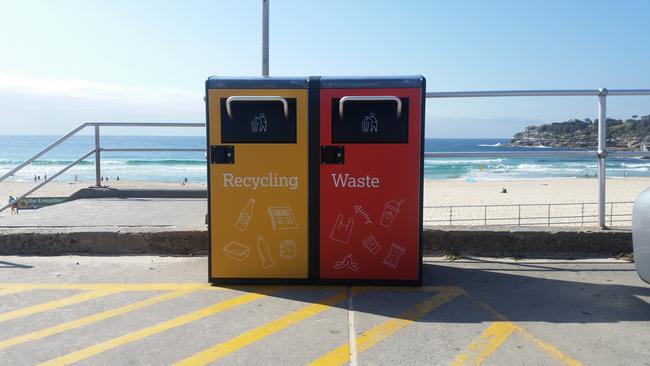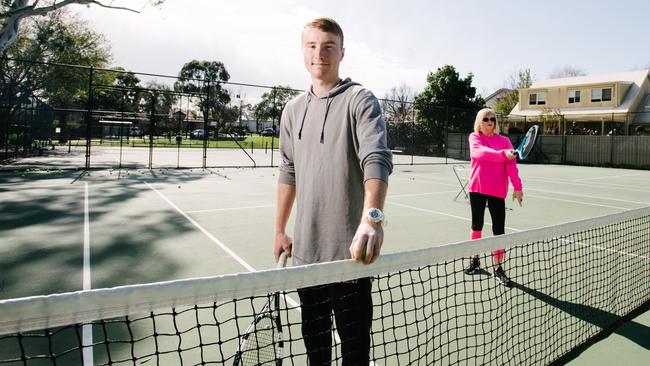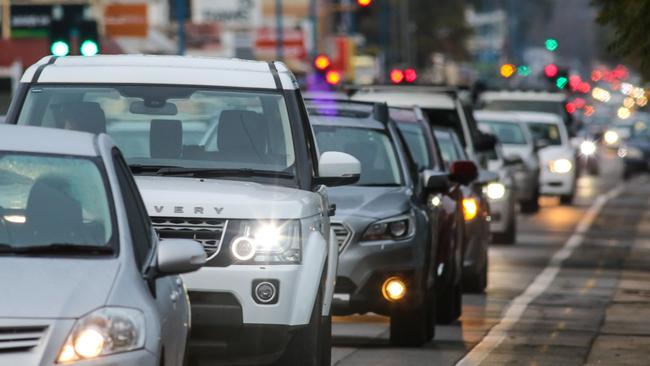Smart City: Adelaide councils using sensors to monitor everything from rubbish to roads
A Port Adelaide rubbish truck drives past a bin, but don’t worry, the driver knows it’s empty. Adelaide councils are increasingly using ‘Smart City’ technology, much of it right under your nose — even on the tennis court.
- Adelaide City Deal signed
- What on earth is a City Deal?
- Adelaide named home of Australia’s Space Agency
REAL time monitoring of traffic congestion, car parks, rubbish bin capacity, tennis court and swimming pool use is being adapted by councils in a bid to make Adelaide the “smartest” city in the country.
In an Australian-first, the Local Government Association of South Australia has launched a ‘Smart Cities’ framework project aimed at ensuring councils are always using cutting-edge technology in planning.
Some of smart ideas already on the table include carparking and traffic technologies that identify vacant parks and road congestion points, interactive maps and audio guides, rubbish bins that know when they need to be emptied, and apps that allow the public to report potholes and footpath damage and view in real-time the schedule for repair.
Leading councils including Burnside in Adelaide’s east are being used as mentors to help other councils embrace new technologies.
Gawler Mayor Karen Redman, who is also chair of an association committee overseeing the roll out of the ‘Smart Cities’ project, told The Advertiser technology and data present myriad of opportunities for councils to improve their effectiveness and efficiency, and services they provide to their communities.

“The needs and expectations of our communities are constantly changing, and smart technologies can help councils identify and implement new solutions and improved services,” Ms Redman said.
“The Smart Cities framework provides a platform for councils to work together on a range of technology and data projects that will benefit all South Australians.”
City of Burnside Mayor Anne Monceaux told The Advertiser her council is introducing 29 smart sensors to measure live usage of facilities including tennis courts, the wading pool, playgrounds, barbecues and carparks.

“Data obtained will assist in providing an evidence base and inform future upgrades of the park, allow for improved maintenance response times and provide an accurate real-time source of information for our community,” Ms Monceaux said.
Already 100 sensors have been rolled out across six metro councils with the help of Federal Government funding and technical assistance from the University of Adelaide.
The sensors feature heavily in rubbish collection with Port Adelaide council using the technology so that a driver, using a tablet device, stops only at bins that need emptying.
Prospect Council is using the sensors to not only alert it when bins are full but also when public barbecues are being occupied or when sports ground are being used — all in real time.
Campbelltown Council is using sensors to evaluate the impact of the Magill Rd upgrade by using the sensors to count people on the busy road.

Councils hope the ‘Smart Cities’ project will increase the efficiency and effectiveness of their municipality, improve local amenity and community wellbeing and drive downward pressure on rates.
Adelaide’s status as a Smart City has been established as part of a City Deal signed by the state and federal governments in the lead-up to the May election.
The status is aimed at complementing work being done at Lot Fourteen — the redevelopment at the old Royal Adelaide Hospital site that is going to house businesses specialising in artificial intelligence, cyber security, smart sensor networks, robotics, big data, defence and space technologies.
